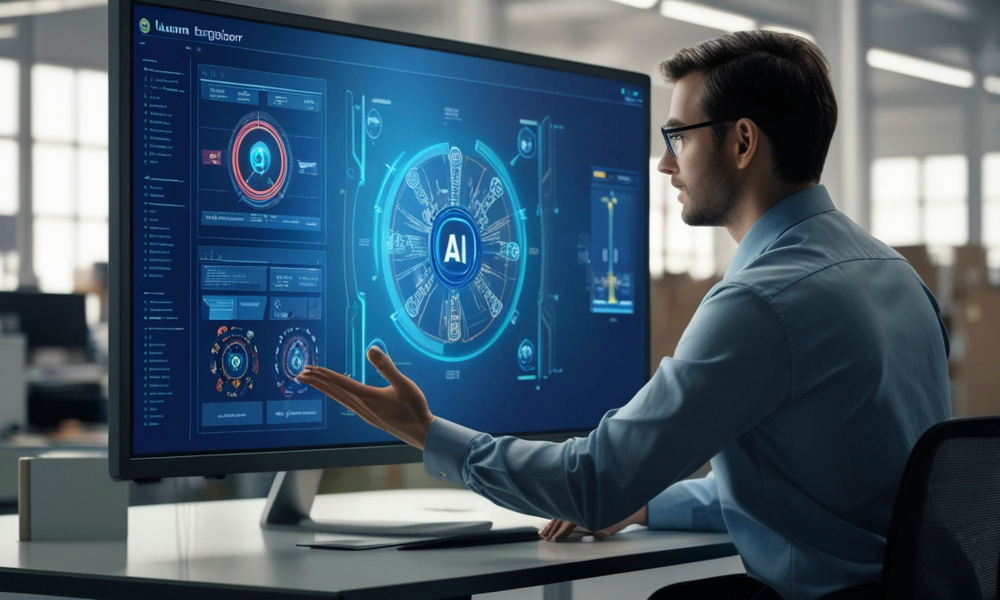
The journey from learning artificial intelligence to landing a job in the field can feel like running a marathon. Between training programs, coding practice, and AI technical interviews, candidates must prove both theoretical understanding and hands-on ability. In 2025, AI hiring processes have become more competitive than ever — employers look for candidates who can not only write code but also reason, optimize, and think creatively about data.
This guide will walk you through every stage — from preparation to performance — so you can confidently ace your AI technical screens and coding challenges.
1.Understand What AI Technical Interviews Involve
AI technical screens are designed to evaluate your problem-solving skills, coding efficiency, and applied knowledge of algorithms, data structures, and machine learning concepts.
Typically, an AI technical interview may include:
- Coding challenges: Usually on platforms like HackerRank, LeetCode, or Codility.
- Machine learning case studies: You may need to explain model selection, feature engineering, or evaluation metrics.
- System design interviews: Focused on designing scalable AI pipelines or recommendation systems.
- Theoretical questions: Covering mathematics, probability, and core ML algorithms.
Understanding the structure helps you focus your preparation strategically.
2.Start with a Solid AI Training Foundation
Before you think about interviews, ensure your training covers the right areas. The AI and Data Science Job Market in 2025 demands mastery in both programming and applied analytics.
Focus your learning around:
- Programming: Python and libraries like NumPy, Pandas, TensorFlow, PyTorch.
- Machine Learning: Supervised, unsupervised, and reinforcement learning concepts.
- Mathematics: Linear algebra, calculus, statistics, and optimization.
- Data Handling: Data preprocessing, cleaning, and visualization.
- Real Projects: Build end-to-end ML pipelines, from data collection to model deployment.
Online platforms like Coursera, Whitefire Technologies, and Udacity offer structured AI training courses with projects that simulate real-world challenges — a critical asset for interviews.
3.Practice Coding Challenges Regularly
Technical interviews are high-pressure, and consistent coding practice is your best defense.
Set aside daily time to solve problems on:
- LeetCode (AI and algorithm sections)
- Kaggle (machine learning competitions)
- HackerRank (data structures, SQL, and Python challenges)
When practicing, focus not just on finding the correct answer but on writing clean, efficient, and readable code. Recruiters often look at variable naming, modularization, and logical clarity — not just output.
4.Learn to Explain Your Thought Process
One of the biggest mistakes AI candidates make is focusing only on the code. Interviewers want to understand how you think.
During the interview:
- Explain your approach before coding.
- Walk through your logic step by step.
- Discuss alternative methods or optimizations.
- Relate your solution to real-world AI problems (e.g., how similar algorithms are used in recommendation systems or NLP tasks).
This not only shows your problem-solving skills but also your ability to communicate complex ideas — a key skill in collaborative AI roles.
5.Review Core AI & ML Concepts
Even if your training was comprehensive, brush up on the fundamentals before the interview:
- Supervised vs. Unsupervised Learning
- Overfitting & Regularization
- Bias-Variance Tradeoff
- Gradient Descent & Optimization
- Evaluation Metrics: Precision, recall, F1 score, ROC-AUC
- Neural Network Basics: Layers, activation functions, loss functions
Many interviews start with quick conceptual questions before moving into hands-on exercises.
6.Prepare for Applied Machine Learning Questions
Employers love to test your ability to apply knowledge in real-world contexts.
You might be asked:
- How would you improve model performance if the accuracy plateaus?
- How do you handle class imbalance?
- What’s your approach to feature engineering or hyperparameter tuning?
These aren’t trick questions — they reveal how you think as a data scientist or AI engineer. Prepare by reviewing past projects, noting specific problems you solved, tools you used, and outcomes you achieved.
7.Build and Showcase Projects
Nothing strengthens your interview portfolio like hands-on AI projects. Employers want to see proof of your skills in action.
Create and publish projects such as:
- Sentiment analysis on social media data
- Predictive maintenance using IoT sensor data
- Image classification with deep learning
- Chatbot using NLP models
- Recommendation engine using collaborative filtering
Host your projects on GitHub or Kaggle and link them in your résumé and LinkedIn profile. Demonstrating your initiative and creativity gives you a clear advantage.
8.Mock Interviews and Peer Review
Before facing the real thing, simulate the experience.
- Use platforms like Interviewing.io or Pramp to practice mock technical interviews.
- Get feedback on your problem-solving flow, communication, and time management.
- Join AI communities on Reddit, Discord, or LinkedIn groups where professionals share interview questions and insights.
Practicing under realistic pressure helps build confidence and improve performance.
9.Communication and Soft Skills Matter
While technical knowledge is essential, don’t underestimate the value of soft skills. Many candidates lose opportunities due to unclear communication or lack of teamwork attitude.
Show that you can:
- Work collaboratively
- Communicate technical concepts clearly
- Adapt and learn continuously
AI teams often operate in cross-functional environments where collaboration between data engineers, analysts, and product managers is crucial.
10.Final Tips for Interview Day
- Get a good night’s sleep before your interview — clarity matters more than cramming.
- Test your environment for virtual interviews (camera, internet, IDE setup).
- Ask clarifying questions during problem-solving.
- Stay calm under pressure — focus on your reasoning, not perfection.
- Follow up with a professional thank-you email after the interview.
Acing AI technical screens and coding challenges is all about combining consistent practice, conceptual mastery, and confident communication. From your training phase to the final interview, every step builds towards proving you can think like an AI professional.
By mastering both the technical and human aspects of interviews, you’ll not only stand out but also demonstrate the creativity and analytical mindset employers in 2025 are actively seeking.

